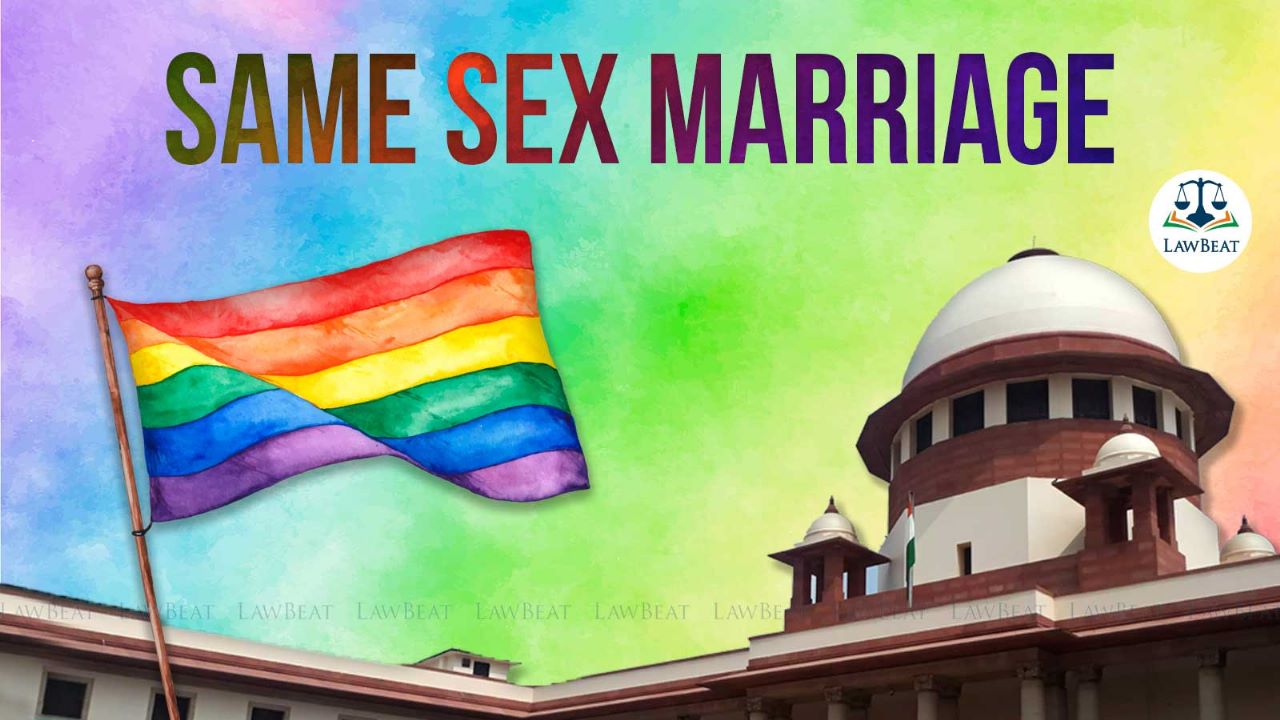"Concept of same sex marriage attack's family system": Jamait Ulama-I-Hind seeks intervention before Top Court

Jamait has stated that the legislative policy of a “marriage” in the Indian legal system, whether penal, constitutional, or personal, has been between a biological man and a biological woman and any deviation or dilution of the definitions of binaries is a matter of legislative policy based on social realities, acceptance and on extensive socio-legal research.
Jamait Ulama-I-Hind has filed an intervention application in the plea before Supreme Court seeking recognition of same-sex marriage stating that recognition of marriage is on the basis of established and sustainable societal norms and shall not keep changing on the basis of variable notions based upon newly developed value system emerging from a different worldview in a different paradigm.
Court has been further told that the concept of same sex marriage goes to attack the family system rather that making a family through this process.
The IA further submits that the petitioners are seeking to dilute the concept of marriage, a stable institution, by introducing a free-floating system of "same-sex marriage‟.
The application filed through Maulana Mahmood Madani, who also served as a Member of Parliament, states that,
"a legal institution, marriage between the opposite sexes has been central to the legal regime of a country like ours. We have numerous statutory provisions ensuring marriages between opposite sexes with related consequential legal provisions with various rights related to inheritance, succession, and, tax liabilities stemming from marriage. Hence, the concept of marriage between two opposite sexes is like "basic feature‟ of the concept of marriage itself which leads to the creation of a bundle of rights."
Opposing the legalization of same-sex marriage, the application adds that the principle of constitutional morality cannot justify same sex marriage based on the fact that in some part of the world this practice is legal; as this can be very harmful for the social order of the other part and that those countries have reached a certain threshold of social order in terms of education/literacy and societal acceptance.
The ambit of "constitutional morality‟ cannot and should not expand itself to the extent to justify the prayer sought in the present petition, the IA adds.
On the aspect of religion and personal laws, the plea states that any person who questions the well-established norms of a religion or demands the creation of a non-existing space within the religious norms and its teachings is in fact seeking to amend the religious norms.
"...similar to most religions, from Christianity to Hinduism, Islam's prohibition of homosexuality has been categorical from the dawn of the religion of Islam itself. From the primary religious text i.e. The Holy Quran to the embargos placed through the teachings of the Prophet Muhammad PBUH, the primary legislator, and to the interpretations available in the vast ocean of work on the Islamic teachings on gender relations and sexuality; the position of Islam with respect to the prohibition on homosexuality is undisputed and established...", the applicant has submitted.
Referring to the Quran, the application states that a study of the Islamic paradigm qua gender and sexuality in Islamic law and theology reflects a clear and fixed principle of only two genders (biological).
As per the applicant, the genesis of the present LGBTQIA+ movement goes back to the Western sexual liberation movement in the last century and, "If we trace the epistemology of the Western sexual liberation movements, the defining figures are nearly all staunch atheists. Since the atheistic worldview had a decisive influence qua the present alterations in the ideas of sexual morality, it must not be allowed to create any space within the religiously governed personal laws of communities."
Background:
Earlier last month, the Supreme Court had ordered that the pleas seeking recognition for same sex marriage shall be heard by a five-judge Constitution bench on April 18 for final disposal.
Importantly, the Central Government had recently filed an affidavit before the Supreme Court opposing the demand for legal recognition of same-sex marriages in India.
Citing the ‘nature of the concept of marriage’, the affidavit stated that the notion of marriage itself necessarily and inevitably presupposes a union between two persons of the “opposite sex”.
It was further stated that: “Depending upon the personal laws applicable, the nature of marriage as an institution is different. Among Hindus, it is a sacrament, a holy union for the performance of reciprocal duties between a man and a woman. In Muslims, it is a contract but again is envisaged only between a biological man and a biological woman. It will, therefore, not be permissible to pray for a writ of this Hon’ble Court to change the entire legislative policy of the country deeply embedded in religious and societal norms”.
On January 6, the Supreme Court had ordered to transfer of all pleas pending before various high courts seeking recognition for same-sex marriage to itself.
In November last year, the Supreme Court issued notice in the instant plea moved by a gay couple seeking legal recognition of same-sex marriage under the Special Marriage Act, of 1954.
Senior Advocate Mukul Rohatgi appearing on behalf of the petitioner-couple had then submitted before a bench comprising CJI Chandrachud and Justice Hima Kohli that the issue was a sequel to Navtej Singh Johar's judgment.
The absence of a legal framework that allows members of the LGBTQ+ community to marry any person of their choice had been raised by the instant plea.
Case Title: Supriyo@ Supriya Chakraborthy v. Union of India & Anr. (a batch of petitions)
